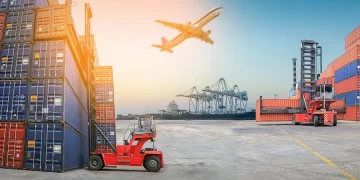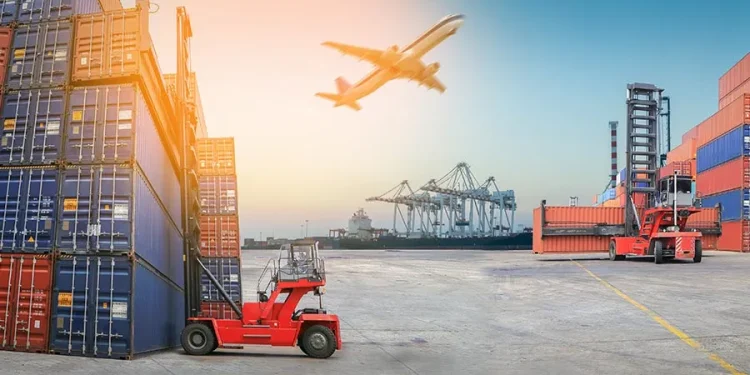The freight forwarding market is rapidly evolving, with major industry players driving innovation and growth. As global trade continues to expand, the role of freight forwarders in ensuring seamless logistics and supply chain management has become more critical than ever.
Key Trends Shaping the Freight Forwarding Market
- Digital Transformation:
- Freight forwarders are adopting digital tools such as AI, blockchain, and IoT to enhance transparency, efficiency, and tracking capabilities.
- Online platforms are simplifying processes like booking, documentation, and cargo tracking.
- E-Commerce Growth:
- The rise of e-commerce has increased demand for last-mile delivery solutions and expedited freight services.
- Freight forwarders are expanding their networks to cater to the growing volume of cross-border e-commerce shipments.
- Sustainability Initiatives:
- Industry giants are investing in green logistics, such as electric vehicles, alternative fuels, and optimized routes to reduce carbon footprints.
- Partnerships with eco-friendly carriers are becoming a priority.
- Resilience in Global Supply Chains:
- Companies are focusing on diversifying routes and carriers to mitigate risks from disruptions such as geopolitical tensions and natural disasters.
Major Players Leading the Market
Key industry giants, including DHL Global Forwarding, Kuehne + Nagel, and DB Schenker, are spearheading advancements in freight forwarding. Their initiatives include:
- Implementing AI-driven predictive analytics for demand forecasting.
- Expanding into emerging markets to tap into new trade lanes.
- Offering integrated solutions that combine air, sea, and road transport for end-to-end logistics.
Challenges Ahead
While the market is thriving, freight forwarders face challenges such as:
- Rising Costs: Fuel price volatility and increased labor expenses are affecting profitability.
- Regulatory Compliance: Navigating complex international trade regulations requires continuous updates and expertise.
- Technological Adaptation: Smaller players may struggle to keep pace with rapid technological advancements.
Future Outlook
The freight forwarding market is poised for substantial growth, with technology and sustainability driving its transformation. By embracing innovation and adapting to changing trade dynamics, freight forwarders can continue to play a pivotal role in global supply chains.
Stay connected with The Logistic News for more updates on industry trends and insights into the logistics world.
#FreightForwarding #LogisticsInnovation #GlobalTrade #SustainableLogistics #SupplyChainManagement























